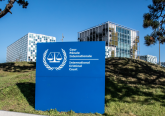
800 years of Magna Carta but learning disabled people remain ‘villeins’, denied rights against arbitrary power. What would a Magna Carta for learning disabled people look like?
Who are the ‘villeins’ today?
No free man shall be seized or imprisoned, or stripped of his rights or possessions, or outlawed or exiled, or deprived of his standing in any other way, nor will be proceed with force against him, or send others to do so, except by the lawful judgement of his equals or by the law of the land. To no-one will we sell, to no one deny or delay right or justice.
800 years ago this set of freedoms was made law. Although Magna Carta is widely believed to have been the first ‘Human Rights Act’, it actually excluded most of the population. It did not apply to ‘villeins’, the ordinary people, sometimes called ‘serfs’ or ‘peasants’. The Lords, Barons and ‘free men’ were granted the right to be judged by their own peers. Most people however were villeins, and outside this new law. They were peasants who were bound to their lords by ties they were not free to break – they had to work for their Lord, they could not leave his land without permission, they did not own their goods or possessions and did not have access to the Royal Courts as the Lords, Barons and Freemen did.[1]
Are people with learning disabilities our modern day villeins? The rights and positions of people with learning disabilities are not judged by juries of their peers but by systems where power is held by ‘lords’ – commissioners, social workers, service providers, psychiatrists, judges and politicians.
Social progress – but learning disabled people left behind
The latter half of the twentieth century was a time of radical social and economic change. The horrors of two global conflicts led to the breakdown of the formerly dominant class system in the UK, which had evolved from the earlier feudal system, carrying with it expectations of behaviour and achievement so rigid for each class that most people were unable to break free of them. The conditions imposed by combat affected all people, but the working classes particularly had an increased demand for change. After this conflict they realised that, having been essential to victory, they were now in a position to organise and achieve change.
The welfare state was introduced, health care was available to all, there was an ambition for homes for all, and suddenly those rigid class structures which had dictated life from cradle to grave were melting away. Employment was high and labour was short, which meant that work was available to more people than before. In particular the shortage of labour meant it was considered worth investing the time and energy in getting everyone working, including those people who had become disabled during conflict.
However, those born with their disabilities still tended to be excluded, often not even considered in this brave new world of freedoms. Whilst pensions were considered important, those disabled from birth tended to be kept institutionalised, frequently abused, and almost universally considered in-educable and incapable. This group of people lived away from mainstream society, often in large buildings set just outside of towns which were deliberately self contained to prevent the contamination of ‘normal people’.
The 1960s and 70s were also times of enormous social change as groups still denied their freedoms fought for the rights everyone else had begun to take for granted – to live, love and work freely. This sense of radicalism also penetrated the institutions in which disabled people lived, and formed the basis of the modern disability rights movement as disabled people fought to prove that everyone deserved the freedom to make their own choices over life, to be educated, and not be forced to live away from mainstream communities.
This rights-based development is closely tied to the development of social security – disabled people were not properly considered during the initial forming of the welfare state because a paternalistic society believed them to be cared for in institutions and so there was no such thing as a ‘disability benefit’. Various allowances were introduced which enabled people to purchase some practical help, or to get around using three wheeled invalidity vehicles, often known as ‘Noddy Cars’[2]. This new ability to get around independently meant that for the first time disabled people were able to travel, to shop, to socialise and for some enter higher education and plan their careers.
However, one group of disabled people were left behind during this revolutionary time – those with learning disabilities. For learning disabled people, their long walk to freedom was to commence much later than for other human rights campaigns, and the abuses which had to be overcome are still occurring today. Community care, which aimed to close down the large, long stay institutions came into its own in the 1980s, but it was as much about a political belief that it would be cheaper to keep people in their own flats than it was truly a desire to emancipate a disempowered group of people. For some learning disabled people community care was the radical step they had been waiting for, and freedoms were eagerly taken up. But for many more the reality of community care was being ripped away from the only homes and families they had ever know and sent to live isolated, unsupported lives.
Choosing where to live
In modern Britain, within the limits of financial resources, most of us expect to grow up and live in our own homes as adults. But even in 2015, the options available to those with learning disabilities in adult life are severely restricted, and becoming ever more restricted as the impact of austerity is felt in people’s daily lives. Some people do live ‘independently’, i.e., living in a typical house, bungalow or flat within the community. This option is only really available to those with learning disabilities who are the most able AND who have families wanting to support the right to live independently.
Independent living should include the required support to do so, but frequently does not as those able to live independently do not reach the restrictive level of eligibility set for social care[3]. In practice this limits independence because being without ‘just enough support’ increases dependence as those things a person does not receive support for build and spiral out of control. For example, a person may be able to count their own change in a shop, and pay bills that have been set up as direct debits for them, but be completely unable to understand a change in cost or service provider. Without supportive family or friends to ask for assistance this kind of simple change can start the cascade of issues which begin to threaten the person’s ability to continue living independently. This kind of support is simply not available from the state any longer, regardless of how clear the need might seem to the woman on the Clapham Omnibus.
What are the alternatives to independent living? Some people live with their families. Sometimes this is a positive choice which everyone in the family is happy about and sometimes it is a negative option where the adult with learning disabilities cannot leave the family home due to a lack of support or appropriate accommodation.
Another possibility is supported living, which may or may not be in an institutional environment. It usually implies a group of people more likely to qualify for support than those living independently. People might be supported in a typical flat/house either living alone, or more commonly, living with someone else who requires a similar level of support who will be chosen for the person by the authorities. Support workers may live in or come in each day.
Shared lives means living with a family, not your own family, to be supported towards gaining the skills and independence needed to move into supported or independent living. Sometimes this can be a shorter term with the goal being independent living, and sometimes this is a life-long solution.
Some learning disabled people live in intentional communities, organisations such as L’Arche, where people with and without disabilities live together in a communal setting.
Other learning disabled people still have no choice but to live in a residential environment, most typically a nursing, care or group home. While a very small proportion of people do choose residential care for themselves, and that choice should be respected, like all these options for living, they are mostly made ‘for’ people by others such as family members or professionals.
The last place in which we find learning disabled people living are Assessment Treatment Units, often hidden away on the edges of industrial estates, and certainly far from typical communities, these are the modern equivalent of Bedlam. Unlike the mental hospitals of old the public do not enter these places for entertainment, but instead only become vaguely aware of their existence when horrors like the torture at Winterbourne View[4] reach their living rooms via their TV screens.
Free and equal citizenship denied
Even for those people with learning disabilities who have been sufficiently fortunate to be well supported to live independently, there are still many issues which restrict their freedoms and prevent full participation as citizens. These range from things like exercising your right to vote, being able to get a job, to marry, to raise your children or even to live free from persecution of the state. Sadly the list of such examples is long and all too easy to find individuals who have had these rights removed. Situations like Winterbourne View quite rightly receive media attention, but the more fundamental structures to all our lives which are so often denied to those with learning disabilities are not as widely known about.
These can range from attempts by the state to restrict a learning disabled person’s right to marry and raise their own children, such as the case of Kerry Robertson[5], to freedom from state instituted persecution and torture as Stephanie Bincliffe[6] tragically experienced in the years running up to her death.
Kerry Robertson is a bright, capable young woman with mild learning disabilities who has been victim of what many perceive as a campaign of revenge after her local social services department first tried to prevent her marriage. Kerry’s case made headlines because those who knew her widely believed her to be completely capable of consenting to marriage and with some support, being a loving, competent parent. However, Kerry and her husband Mark have had to flee their home country of Scotland in an attempt to escape their local authority’s dictatorial approach to their lives. If there were truly issues surrounding consent and child protection, then of course the state has a duty to investigate, but given that Kerry and Mark have been deemed perfectly capable of parenting by another local authority social services department it is difficult to see this as anything but a deliberate restriction of freedoms based solely on Kerry having a mild learning disability.
Kerry’s experiences of having her freedoms restricted by the state are terrible enough, but pale into comparison to that of Stephanie Bincliffe who had more significant learning disabilities and the label of challenging behaviour. Challenging behaviour can mean anything from a learning disabled person being uncooperative with the desires of other people who do not have learning disabilities, through to a whole spectrum of behaviours which are extremely harmful to that individual or others. Whilst we all demonstrate challenging behaviour at times, particularly during adolescence as we develop a sense of self separate to that of our parents, challenging behaviour as a label which leads to punishment is uniquely applied to those with learning disabilities, and is often their ticket into an Assessment Treatment Unit.
For Stephanie, during the seven years of her detention by the state, freedom must have seemed so very far away. Stephanie was taken into an Assessment Treatment Unit at the age of 18. She was held in a ‘safe room’, which amounted to a padded cell with a tiny, bare patch of outdoor space. She was not allowed a bed, slept on a beanbag and was fed through a hatch in the door to her ‘room’. When Stephanie died, aged 25, still in that padded cell, it was due to the complications of morbid obesity.
A young woman, in the care of the state, kept in a locked room for seven years, with no access to food beyond that given to her by the staff, died essentially because she was fed to death.
Stephanie’s behaviour was no doubt challenging, and there was no doubt that at times she was a danger to herself and to others, but can any of us honestly claim that after a few days locked in an isolation room fed only through a hatch in the door that we would not become equally challenging?
What would Robin Hood do?
In this Magna Carta anniversary year, my co-worker, Gary Bourlet, and I wanted to consider, what might a modern day Robin Hood do about this? How could she help this excluded and often powerless group of modern villeins take up their power and gain their freedoms? This led us to questions about legislation – would a new Magna Carta aimed specifically at this group be effective, or would we need something entirely new? Even with the correct legislation, how would our Robin Hood get the power and money into the right places, controlled by the right people?
We considered many options, but eventually concluded that these were the three priorities for gaining freedom and equality:
1. A foundation which is specifically aimed at supporting people to live independently, where the money is contributed by those who earn over a certain amount and distributed fairly.
2. She would support people to build resilient communities where people look after each other, and ensure that nobody is hungry or isolated. Part of this would be campaigning to bring all classes of people together to live in harmony.
3. She would take vengeance on the bullies who deprive learning disabled people of their freedoms and sometimes even their lives. She would seek justice in partnership with those learning disabled people.
We asked the question; how can people with learning disabilities take up their power and move away from being villeins? The conclusion was that the most important part of this was about being accepted, and integrated into the community from the earliest ages. Children are naturally accepting of other children, it is only when they are told by society that someone is different that they learn the language of discrimination.
To enable people to take up their rights, these kind of aspirations are not enough. Like the original Magna Carta, which for the first time limited the power of the king, legislation will be required to provide a clearer structure of legal freedoms and obligations.
We think that a new Magna Carta would be based on the United Nations Convention on the Rights of Persons with Disabilities, the Human Rights Act and Care Act. The legal priorities would be being considered truly equal, the freedom from torture or cruel treatment, whether at the hands of the state or not, and the ability to live both freely and safely. To enact these principles we believe there would have to be a statutory right to independent living (with the right to the support required to achieve that), a culture change to respect people’s existing rights, such as ensuring those with learning disabilities are not denied their legal right to vote, and supporting people to have friends and relationships. In addition to legislation we think that independent advocacy, joined up services and a culture of supportive enablement instead of deprivation of liberty at crisis points would be needed.
Finally, in considering our new future we needed to think about what freedom would be and how that might look. We decided that freedom would be:
a world where you could wake up in a comfortable home and go to work being safe and valued. There would be no inequality or discrimination. There would be the right to sufficient financial support to feed, house and clothe yourself and your family. You could make your own choices about where you want to live and what support, if any, you would need. There would be free access to transport and free medical care. Education would be free and available for all. People would be free to love and befriend as they choose.
These are basic freedoms which most citizens of the United Kingdom would take for granted, but in this 800th anniversary year of the Magna Carta, the 1.5 million adults with a learning disability[7] are frequently blamed, targeted and forbidden these freedoms, whilst those with power are not held accountable for the consequences of their words and actions.
This post is part of our Great Charter Convention series, hosted in collaboration with Open Democracy, IPPR and the University of Southampton.







